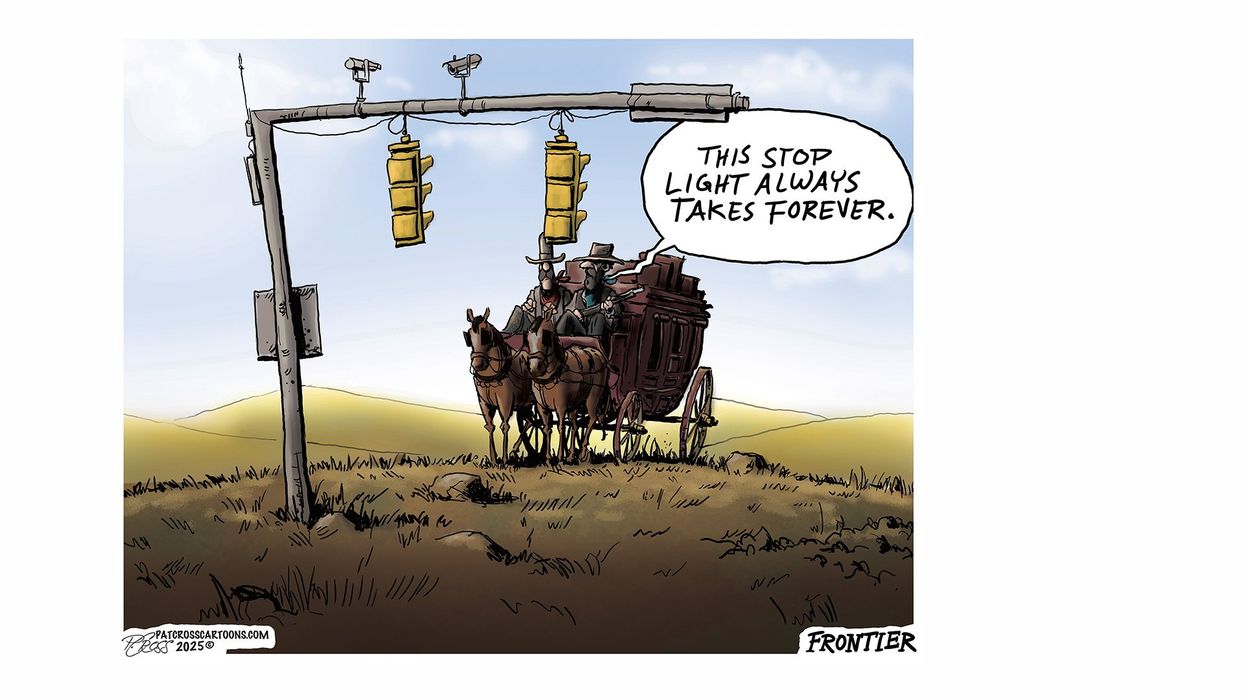
© 2026 Blaze Media LLC. All rights reserved.
The early progressives—the architects of America’s vast administrative state—clearly had a moral dimension to their theories. They were simply the midwives of the perfection of human society—a society where man is eventually virtuous, unselfish, and self-sacrificial. Who would dare oppose such a noble vision?
Enter their opponents: conservatives, who “stand still” or “look backward” to bygone times, quickly become the villains in this moral quest for perfection in the historicist frame of thinking. The conservative label implicitly buys into this worldview because it is, likewise, captive to historicist thinking; therefore, it is not a viable option for effective change because it cedes a large swathe of rhetorical territory to its opponents in the culture war.
The days of nostalgic gesturing and idealist thinking must come to an end.
The opponents of progressive policy and culture have claimed this reactive mantle for a very long time—so long, in fact, that most conservatives don’t even agree on what values or what time period we should be looking back to. To complicate matters further, conservatives fell for the sleight of hand that the progressives orchestrated in the 1930s, when they reclaimed the “liberal” label. It is a sign of unclear thinking to say that the people who wanted to repudiate the principles of the American Founding are liberals. And yet, these are exactly the terms we use in our discourse today. Something needs to change.
The days of nostalgic gesturing and idealist thinking must come to an end. The current cultural paradigm has proved to be bankrupt if the goal is a healthy and thriving culture. Indeed, our culture has become increasingly unrecognizable and violent by the day.
What can replace what we’ve been doing as a culture for as long as most people can remember? Some might say that we need better policies in government, or that we need to perform open-heart surgery on the political system. That may be true, but real cultural change has to happen at the individual level, regardless of the political circumstances. This shift is already occurring all around us, and it can be called revivalism.
Make no mistake—this is no Nietzschean worship of life. In reality, it’s much simpler than that. People are taking matters into their own hands, with a minimum of violence, as they begin to understand that the advice they’ve been given is not conducive to a good life.
In Orwell’s 1984, the dissident protagonist Winston Smith was made physically ill by both the environment in which he lived and the spiritual malaise that sat over his society like a dense, unmoving fog. He knew something wasn’t right, that things could be different, that things could be better. Only when he started trying an alternative way of life did he glimpse that this instinct was right; tragically, however, it was too late for him to fully realize it.
Americans, like Winston, are ill, both physically and spiritually. However, we have two advantages that he lacked: a constructive direction to follow and a growing community of like-minded revivalists.
Revivalism is a perfect candidate to replace our defunct cultural paradigm because it neither needlessly clings to the past nor does it naively idealize the future. People are taking control of their health, exercising, and going outside. They are reading, being social, and trying new hobbies. On the frontier of this movement, some are even growing their own food, raising their own livestock, and trying natural alternatives like unpasteurized milk.
The MAHA movement is a major spur in the right direction, but revivalism need not be limited by politics. People know when they don’t feel well, and now they are taking action. The result has been an increasingly health-conscious population that is rejecting the anti-social, antihuman, “scientific” advice of the expert class. As revivalism continues to pique people’s interest, they will realize that these steps toward change are far simpler than anything the experts would tell them. Go for a walk outside. Eat healthy food. Spend time with people you love.
Stop relying on the government’s sweeping promises of seismic societal changes and join the revival. You can start by going for a walk.
You’ll be surprised by how quickly life will become enjoyable again once you make that choice.
Cooper Williamson is the profiles editor for Frontier, research assistant at Blaze Media, and a 2025 Publius Fellow.
Want to leave a tip?
We answer to you. Help keep our content free of advertisers and big tech censorship by leaving a tip today.
Want to join the conversation?
Already a subscriber?
Cooper Williamson is a research assistant at Blaze Media and the profiles editor for Frontier magazine. He is a 2025 Publius Fellow with the Claremont Institute.
Coawi2001
Cooper Williamson
Cooper Williamson is a research assistant at Blaze Media and the profiles editor for Frontier magazine. He is a 2025 Publius Fellow with the Claremont Institute.
@Coawi2001 →more stories
© 2026 Blaze Media LLC. All rights reserved.
Get the stories that matter most delivered directly to your inbox.
By signing up, you agree to our Privacy Policy and Terms of Use, and agree to receive content that may sometimes include advertisements. You may opt out at any time.



